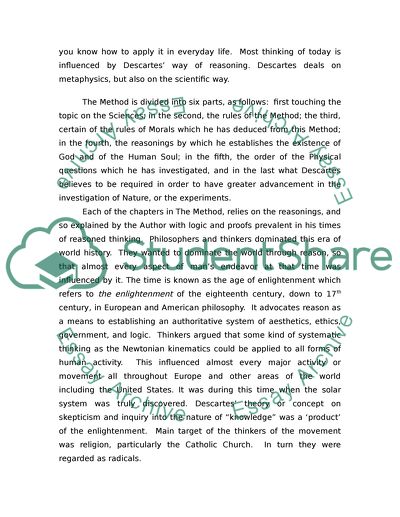Cite this document
(Proof of God in The Method by Rene Descartes Book Report/Review Example | Topics and Well Written Essays - 1500 words, n.d.)
Proof of God in The Method by Rene Descartes Book Report/Review Example | Topics and Well Written Essays - 1500 words. https://studentshare.org/religion-and-theology/1526372-rene-descartes-the-method
Proof of God in The Method by Rene Descartes Book Report/Review Example | Topics and Well Written Essays - 1500 words. https://studentshare.org/religion-and-theology/1526372-rene-descartes-the-method
(Proof of God in The Method by Rene Descartes Book Report/Review Example | Topics and Well Written Essays - 1500 Words)
Proof of God in The Method by Rene Descartes Book Report/Review Example | Topics and Well Written Essays - 1500 Words. https://studentshare.org/religion-and-theology/1526372-rene-descartes-the-method.
Proof of God in The Method by Rene Descartes Book Report/Review Example | Topics and Well Written Essays - 1500 Words. https://studentshare.org/religion-and-theology/1526372-rene-descartes-the-method.
“Proof of God in The Method by Rene Descartes Book Report/Review Example | Topics and Well Written Essays - 1500 Words”. https://studentshare.org/religion-and-theology/1526372-rene-descartes-the-method.


